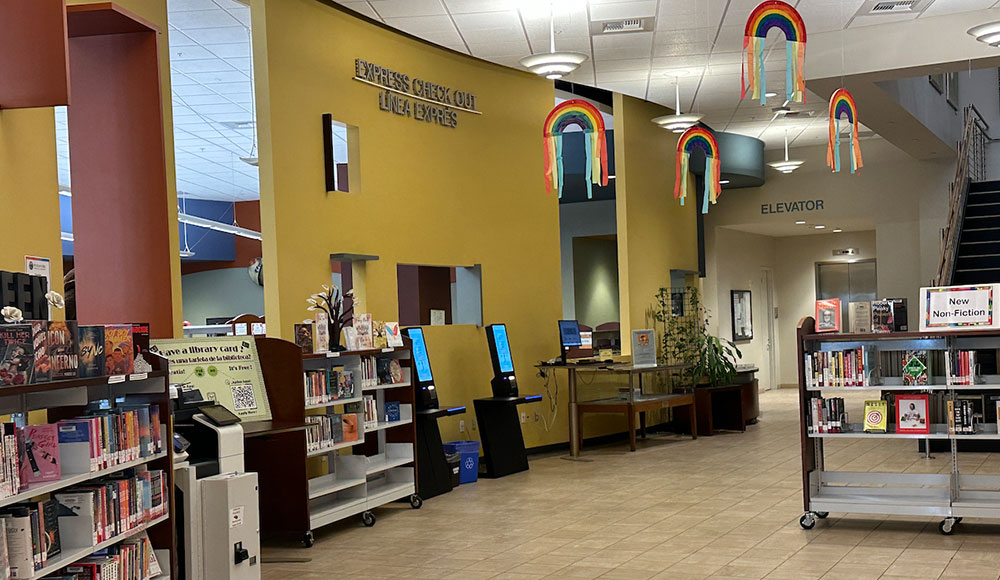On April 7, California Attorney General Rob Bonta joined a coalition of 21 attorneys general in a lawsuit against the Trump Administration that pushes back against a March 14 executive order by President Donald Trump to cut federal funding for libraries and museums.
The order will leave no community untouched. But the impact will vary throughout the state.
Both the Santa Cruz County Public Library and the Watsonville Public Library systems receive millions of dollars from Measure R, a 2008 quarter-cent sales tax earmarked exclusively for libraries. That will largely cushion local institutions from the order.
“We’re OK,” said Watsonville Public Library Director Alicia Martinez. “We’re not going to suffer.”
Still, the executive order lists seven agencies deemed to be “unnecessary” and demands that they “be eliminated to the maximum extent consistent with applicable law.”
This includes the Institute of Museum and Library Services (IMLS), which is the only federal funding source solely for libraries. In 2024, the IMLS awarded $266.7 million to museums, libraries and related organizations throughout the U.S.
The order also includes the Minority Business Development Agency and the Federal Mediation and Conciliation Service.
While Trump does not have the authority to eliminate federal departments outright, he can defund them so that they become largely ineffective.
The order means that the California State Library—the agency that delivers state and federal funding to local libraries—will lose its funding under the Library Services and Technology Act, which this year amounts to more than $15 million.
For local libraries, the order will affect the system’s ability to deliver several services, including online access to The New York Times, which allows cardholders to read an average of 560 articles per month, and professional development courses and leadership programs for library staff, said Santa Cruz Public Libraries director Christopher Platt.
It will also impact free access to the Braille and Talking Book Library, which currently has nearly 200 active users.
“That’s really expensive to offer, and a local library like us or like Watsonville wouldn’t be able to step up and fill that void,” Platt said.
It will also hurt the ebook collection, which makes up for 46% of the library’s usage, meaning fewer choices and longer wait times for people who download and listen to books through the Libby app, he said.
The loss of funding will fall heaviest on museums, tribal libraries and small rural libraries, Platt said.
“Rural libraries, small libraries and tribal libraries especially,” he said. “They really rely on IMLS funding to do just about anything. These are on shoestring budgets. If that money goes away, the few innovative programs they offer might go away. So it has a ripple effect across the whole state.”
Libraries, he said, provide a vital role in their communities, with families accessing books to teach their children how to read and patrons finding a quiet work area or a place to connect with others.
“You just have to walk through any library in the state, any public library, and you see how necessary they are,” he said.
“I’ve seen public libraries do amazing things in my lifetime. Our collections are far more diverse than they’ve ever been. This kind of feels like we’re being attacked for no good reason. There is no rhyme or reason.”














